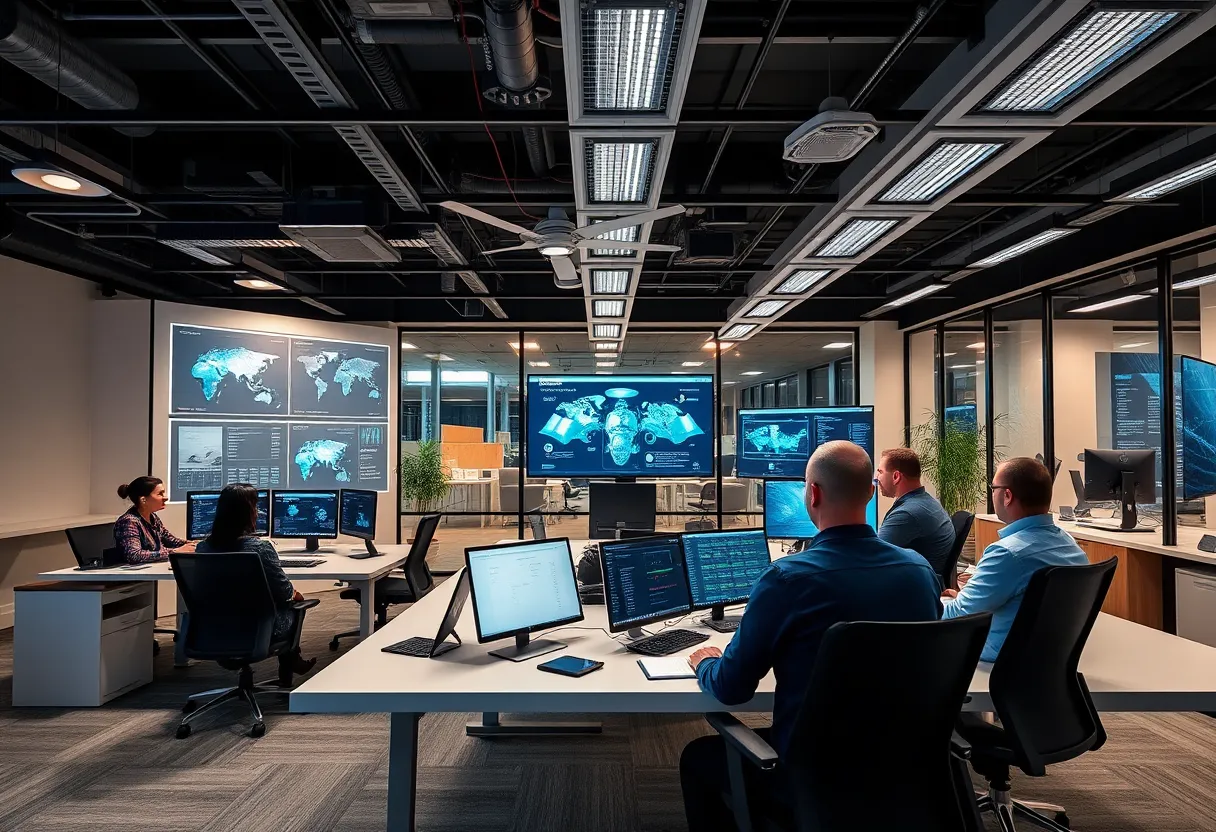News Summary
The security integration industry is embracing emerging technologies like AI, VR, and automation to address workforce shortages and enhance operational efficiency. Tools such as project management software and digital twins are streamlining workflows. The industry’s shift towards digital innovation is essential to providing smarter security solutions and improving client services. Initiatives like the Foundation for Advancing Security Talent are combating talent shortages while advanced training and recruitment tools, including VR simulations, are enhancing employee retention and satisfaction. As the industry leverages these technologies, it positions itself for future growth and a competitive advantage.
Emerging Technologies Transform Security Integration Industry Amid Workforce Shortages
The security integration industry is experiencing a significant transformation as companies adopt emerging technologies to combat increasing workforce shortages. As the demand for smarter and more integrated security systems rises, it is essential for firms to enhance their operations and recruitment strategies to meet complex client needs effectively.
Addressing Workforce Challenges
One of the most pressing challenges facing the industry today is a shortage of skilled technical workers in roles such as system designers, field engineers, and cybersecurity-savvy technicians. To confront this issue, the Foundation for Advancing Security Talent (FAST) was launched, aiming to promote careers in physical security technology. Through outreach to educational institutions, job boards, and industry research, FAST seeks to connect professionals with roles, helping to alleviate the current workforce shortages.
Utilizing Advanced Technology for Recruitment and Training
To ensure a steady pipeline of talent, security integration firms are increasingly turning to artificial intelligence (AI) platforms like HireVue, Eightfold, and Beamery. These tools analyze resumes and video interviews, thereby improving candidate matching and fostering diversity in hiring. Moreover, Virtual Reality (VR) simulations offer a safe environment for training technicians on complex installations, enhancing the overall training experience with companies like PixoVR leading the charge.
Employee Retention Strategies
In addition to improving recruitment, security firms are leveraging advanced tools to bolster employee retention. Platforms such as CultureAmp and Lattice utilize data analytics to monitor employee satisfaction and predict turnover risks. By implementing such automated retention tools, companies can proactively address workplace concerns and enhance overall job satisfaction among employees.
Boosting Operational Efficiency
Operational efficiency is being significantly enhanced through the use of tools such as project management software, digital twins, and Robotic Process Automation (RPA). For instance, platforms like Procore, Smartsheet, and Fieldwire assist integrators in managing job sites, subcontractors, and compliance, streamlining workflows, and ultimately increasing profitability.
Digital Twin technology allows teams to simulate installations before actual on-site work, thereby reducing complications during the construction phase. Additionally, RPA tools like UiPath and Automation Anywhere automate repetitive tasks, such as data entry and compliance reporting, freeing up valuable time for staff to focus on more strategic endeavors.
Enhancing Quality and Reliability of Security Solutions
As the security integration industry moves beyond traditional surveillance systems and access control into the realm of digital innovation, advanced design platforms and IoT-enabled devices are setting new standards for quality, reliability, and scalability of security solutions. For example, AI-driven business intelligence tools provide critical insights by analyzing performance metrics, which in turn aids in enhancing decision-making and boosting profitability.
Furthermore, edge AI cameras deliver real-time analytics, improving capabilities such as facial recognition and license plate identification, which are increasingly important in today’s fast-evolving security landscape. With features enabling remote diagnostics and expedited project delivery, these technologies are truly revolutionizing how security integration firms operate.
The Future of Security Integration
The shift toward an integrated digital approach is no longer optional in the security integration industry; it has become a competitive necessity. As security threats evolve, clients are increasingly expecting advanced systems that can keep pace. Firms that effectively harness emerging technologies stand to improve project delivery quality, attract and retain top talent, and enhance their internal operational efficiencies.
In conclusion, the integration of advanced technologies positions security integration firms not only to address current workforce challenges but also to meet the ongoing demands of a rapidly changing security landscape. By investing in innovative tools and strategies, the industry can look forward to a promising future while continuously enhancing the quality and effectiveness of their services.
Deeper Dive: News & Info About This Topic
Additional Resources
- Security Info Watch
- Wikipedia: Security Integration
- SiliconAngle
- Google Search: Emerging Technologies in Security Integration
- New York Times Wirecutter
- Encyclopedia Britannica: Security System
- Grand View Research
- Google Scholar: Security Automation
- BusinessWire
- Google News: Security Integration Challenges
Author: Construction CA News
The CALIFORNIA STAFF WRITER represents the experienced team at constructioncanews.com, your go-to source for actionable local news and information in California and beyond. Specializing in "news you can use," we cover essential topics like product reviews for personal and business needs, local business directories, politics, real estate trends, neighborhood insights, and state news affecting the area—with deep expertise drawn from years of dedicated reporting and strong community input, including local press releases and business updates. We deliver top reporting on high-value events such as the Rose Parade, Coachella, Comic-Con, and the California State Fair. Our coverage extends to key organizations like the California Building Industry Association and Associated General Contractors of California, plus leading businesses in technology and entertainment that power the local economy such as Apple and Alphabet. As part of the broader network, including constructionnynews.com, constructiontxnews.com, and constructionflnews.com, we provide comprehensive, credible insights into the dynamic landscape across multiple states.


